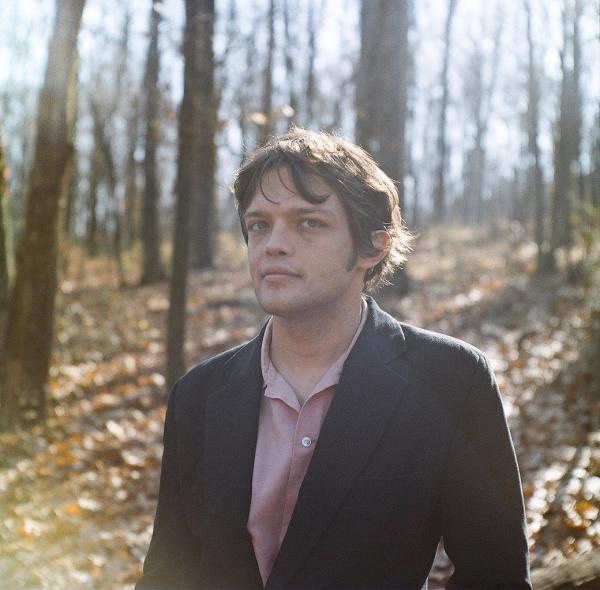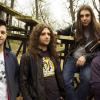Q&A with William Tyler, Playing Green Room Wednesday

Photo Credit: Will Holland
Nashville-based guitarist and songwriter William Tyler has done time in indie rock's trenches, as a member of such critically acclaimed groups as Lambchop and Silver Jews. In 2010, he stepped out on his own with Behold the Spirit, a stirring collection of instrumental music steeped in the folk ethos of American Primitivism but also kissed with psychedelia. Another full-length, Impossible Truth, followed last year. On Apr. 29, Merge will issue a three-song EP, Lost Colony.
Flagpole spoke with Tyler in advance of his show Wednesday at Green Room.
Flagpole: You perform instrumental music, but the songs are about some really heavy subjects. Do you find that it is difficult to communicate the meanings of these compositions to audiences?
William Tyler: It’s more difficult when I’m in the context of doing a show, to try to figure out the appropriate amount of stage banter between songs. It’s hard to distill these complicated, integral theories of history, metaphysics and pop culture. Yeah, it does make it kind of challenging, in [that] context. But, in terms of talking about it in a longer-form context, it’s easy.
Up to this point in your career, you’ve mostly served as a musician in other people's bands. Was there any anxiety stepping into the limelight as a solo artist?
Yeah, [there] was at first. But, in all honesty, I’m way more comfortable with that role now. You've gotta keep in mind that I understand the associations and everything, with Merge. But I haven’t played with Lambchop in about four years. And I haven’t really been in anyone else’s band in that time, so I feel like, in some ways, I started making this transition three years ago. And it was super uncomfortable for a long time. I also had to get more refined at the guitar-playing style that I’m doing now, the complex finger-style guitar.
On a lot of levels, it’s so nice for it to be your own thing and there’s no one telling you what to do. You have so much room to explore, and the traveling makes it feel like less of being on tour and more like an ongoing, weird, solo road trip.
How does your new EP translate live? Do you tour with a band?
No. There are times when I am in Nashville where I do have the ability to play with other musicians from time to time and flesh things out. But, no, when I’m on tour, it’s just me. I do a lot of looping. I use some pedals. About a half or a third is strictly acoustic. It’s varied.
I know you came of age in Nashville. How does your music come off there? I expect that you’re kind of a fish out of water.
Yes. Definitely. Well, to be honest, it’s a challenge. In Nashville, there’s not the right context for it. Obviously, it’s a town with a history of a lot of great guitar players and musicians. But the post-Tacoma, post-Fairport Convention—there’s so many different layers in terms of what I do, as far as influences. Some of it is a Nashville influence, but not in ways that people would be super aware of, I think… Especially now, it’s such a town of singer-songwriters and singers, and what I do gets lost in the mix, which is fine. It makes what I do a lot different.
Is it fair to say that it’s hard to understand Nashville from the outside?
It’s an industry town, not too dissimilar from Los Angeles. There’s a lot of weird interaction between what I would consider mainstream, Music Row country and the next tier down, which are people featured in American Songwriter and the capital-'A' Americana, which is really a brand now. There’s not really outsider country anymore. That’s also just a world that I have no involvement with at all [laughs].
"You have so much room to explore, and the traveling makes it feel like less of being on tour and more like an ongoing, weird, solo road trip."
Even when I played in Lambchop, there was no involvement with that. The people we were connected to were the people like Yo La Tengo, or Merge bands, or Chicago bands. And, now, it’s the same thing. The people that I feel I have the closest musical kinship with are outside of Nashville. There are people I like playing music with and have friends there. Actually, Nashville has wound up being pretty supportive of what I do, but I don’t feel connected to the music scene in Nashville.
Your music requires a kind of active listening. I imagine that it is more difficult to pay close attention in a live setting. Do you experience crowds that feel this way?
Yes [laughs]. But it’s weird. I’m in a total contextual purgatory. What I do, it’s not considered experimental music. I think there are a lot of people that like experimental music that like what I do. I could conceivably see myself playing music festivals that feature experimental music. I love listening to experimental music. I love listening to ambient music. That’s kind of the stuff I love listening to more than anything.
But, what I do is also not folk music. It’s certainly not pop music. But it is a hybrid, and I think that, in a way, opening for Daniel [Rossen, of Grizzly Bear]—that, to me, is a perfect context. I think there are different ways of presenting it. Doing it in a rock club in between bands doesn’t work. I do it sometimes. I don’t really care; I’ll play wherever. But, it does require active listening, and the environment should be conducive to that.
When you’re at my level, you’re either playing DIY spaces or opening for someone. Or, you’re trying to forge a middle path, where you play some small-size indie rock club where you can "headline." From a monetary standpoint, it’s really not feasible to do a tour of house shows unless they’re nice, lucrative house shows. I’ve put on hundreds of DIY shows over the years for friends of mine. If you’re going to try to make it a career—which, I would love to make this a career—you have to compromise, where you play for $200, but you play at a rock club with a couple of bands. If you put together a tour like that, you come home with money. And I do believe in connecting with people in any way possible. If you can connect with a few people at a time—not to sound too optimistic—that is how you organically grow it.
William Tyler plays Green Room on Wednesday, Apr. 9.











comments